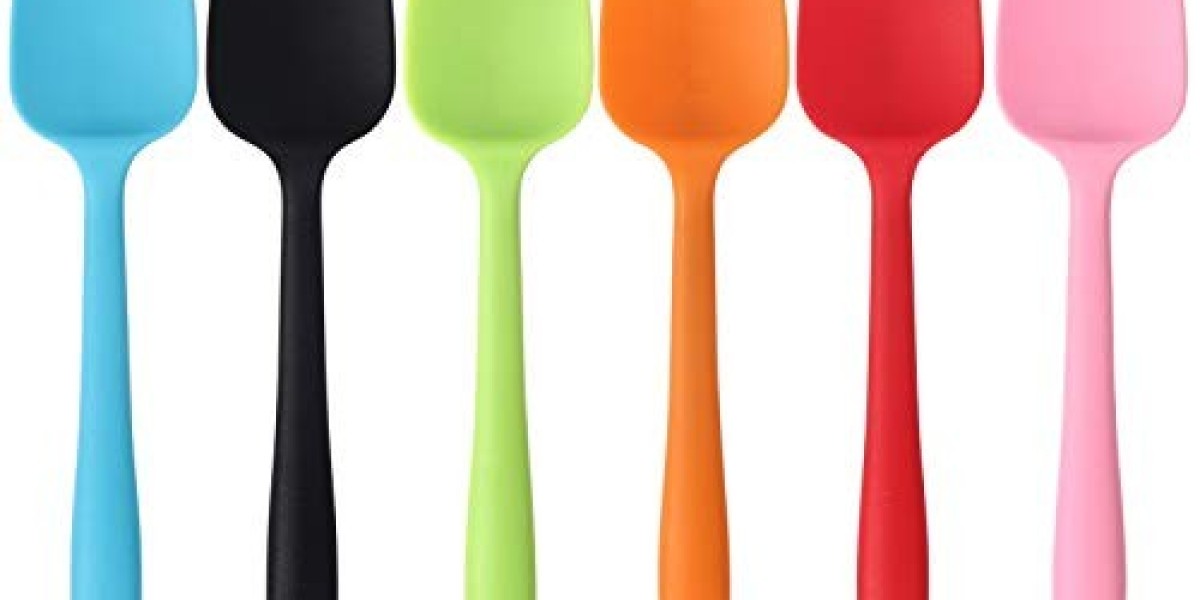Silicone spatulas have become a staple in modern kitchens. Their versatility, heat resistance, and non-stick properties make them indispensable tools for cooking and baking. However, many people wonder, Are silicone spatulas toxic? This question arises from growing concerns about the safety of kitchen materials and their potential impact on health. This article explores the safety of silicone spatulas, their benefits, and practical tips to ensure their safe use in cooking.
What Are Silicone Spatulas Made Of?
Silicone spatulas are made from food-grade silicone, a synthetic polymer composed of silicon, oxygen, and other elements. Silicon is a natural element found in sand and quartz. When processed into silicone, it becomes a flexible and durable material. Silicone is widely used in cookware due to its ability to withstand high temperatures and its non-reactive nature.
Food-grade silicone is specifically designed for use in cooking and baking. It is free from harmful chemicals like BPA and phthalates, which are common in some plastics. This makes silicone spatulas a safer alternative to plastic utensils.
Are Silicone Spatulas Toxic?
The question "Are silicone spatulas toxic?" has been extensively studied. Research indicates that food-grade silicone is generally safe for cooking and baking. Unlike some plastics, silicone does not release harmful chemicals when exposed to heat. It can withstand temperatures ranging from -40°F to 450°F (or higher, depending on the product). This makes it ideal for high-heat cooking methods like frying and baking.
Additionally, silicone is non-porous, which means it does not absorb odors, flavors, or bacteria. This property enhances its safety and hygiene. However, to ensure safety, always purchase silicone spatulas labeled as "food-grade" or "FDA-approved."
Safety Concerns About Silicone Spatulas
While food-grade silicone is generally safe, some concerns have been raised about its potential to leach chemicals under extreme conditions. Here are a few key points to consider:
- Low-Quality Silicone: Not all silicone spatulas are created equal. Low-quality or non-food-grade silicone may contain fillers that could leach harmful substances when heated. To avoid this, buy utensils from reputable brands that explicitly state their products are food-grade.
- Overheating: While silicone is heat-resistant, exposing it to temperatures beyond its rated limit can cause degradation. Overheating can release chemical compounds that may be harmful. Always check the manufacturer’s temperature guidelines.
- Cracks or Damage: Silicone spatulas can develop cracks or tears over time. Damaged utensils can harbor bacteria and compromise safety. Regularly inspect your spatulas and replace them if needed.
Tips for Safely Using Silicone Spatulas
To ensure the safe use of silicone spatulas, follow these practical tips:
- Choose High-Quality Products: Always opt for food-grade silicone spatulas from trusted manufacturers. Look for labels like "BPA-free" and "FDA-approved."
- Avoid Extreme Temperatures: Do not expose silicone spatulas to temperatures beyond their recommended range. For instance, avoid leaving them in a hot pan for extended periods.
- Inspect Regularly: Check for signs of wear and tear, such as cracks or discoloration. Replace damaged spatulas to maintain hygiene.
- Proper Cleaning: Clean silicone spatulas thoroughly after each use. They are usually dishwasher-safe, but hand washing with mild soap and warm water can prolong their lifespan.
- Store Properly: Store silicone spatulas in a dry, cool place to prevent deformation and maintain their quality.
Benefits of Using Silicone Spatulas
Silicone spatulas offer numerous advantages that contribute to their popularity in kitchens worldwide:
- Heat Resistance: Silicone can handle high temperatures without melting or warping, making it suitable for various cooking tasks.
- Non-Stick Properties: Silicone spatulas glide smoothly over non-stick surfaces, preventing scratches and preserving cookware.
- Durability: Silicone is a tough material that resists cracking, fading, and breaking, ensuring long-lasting use.
- Ease of Cleaning: Their non-porous surface makes silicone spatulas easy to clean and resistant to stains and odors.
- Eco-Friendly Option: Unlike single-use plastic utensils, silicone spatulas are reusable and contribute to reducing kitchen waste.
Alternatives to Silicone Spatulas
For those who still have concerns about "are silicone spatulas toxic," there are alternative materials to consider:
- Wooden Utensils: Wood is a natural and biodegradable option. However, wooden utensils can absorb moisture and harbor bacteria if not properly maintained.
- Stainless Steel Utensils: Stainless steel is durable and safe for cooking but unsuitable for non-stick cookware as it can cause scratches.
- Bamboo Utensils: Bamboo is a sustainable and lightweight option. It’s also less likely to absorb odors and flavors compared to wood.
Each material has its pros and cons, so choose based on your cooking needs and personal preferences.
Conclusion
In conclusion, the answer to "Are silicone spatulas toxic?" is generally no, provided you use high-quality, food-grade products. Silicone spatulas are safe, versatile, and convenient tools for various cooking and baking tasks. By following safety tips such as avoiding extreme heat, inspecting for damage, and cleaning properly, you can ensure their safe use in your kitchen. For those seeking alternatives, materials like wood, stainless steel, and bamboo offer viable options. Ultimately, informed choices and proper care will help you enjoy the benefits of silicone spatulas while ensuring your health and safety.



